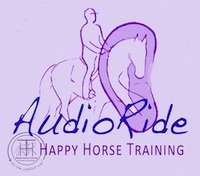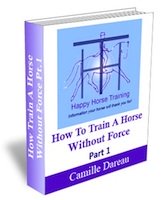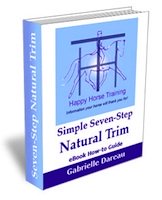|
Horse Diseases
The fact that most horse-owners expect their equine companions to perform as athletes, as well as being their beloved friends, leads to much time and effort being spent attempting to diagnose and treat the considerable spectrum of horse diseases which arise. We worry over whether our horses have Navicular disease, and live in fear of any form of colic. We invest particularly intense emotion in our horses' health, and are often only too happy to let someone else shoulder the heavy responsibility - usually the vet or the farrier. Most people involved with horses understand the concept that prevention is better than cure, but do they actually put it into practice? Prevention, when it comes to horse diseases, surely involves providing a lifestyle as close to the wild horses' lifestyle as is possible, within certain inescapable limits. 

Why do we give ourselves such a lot of trouble, when the solution is apparently so simple? There are several reasons:
Living systems have a phenomenal power to realign and rebalance themselves, they have been evolving for longer than we can conceive of after all. Most 'horse diseases' are labels for a range of symptoms which occur because of a series of health imbalances which may have been developing for years before we become aware of them. Yet we want them fixed tomorrow. This impatience leads to invasive techniques whose main achievement seems to be shutting down the horse's own healing system. This opinion is not based on idealism, but on many experiences of healing horse, dogs, people and other animals, by supporting their healing systems, not attacking or suppressing them. All of our horses are devoting some of their energy to healing themselves most of the time. Sometimes it might be passing injuries or illnesses, which interestingly are rare, and are usually related in some way to their 'life healing' which concerns whatever issues they choose to deal with in this lifetime. 
Some of these horses have been dealing with well known horse diseases, syndromes and life altering injuries but it is perhaps sadder to consider that many horses do not have a health label attached to their problems, although they would suffer less if they did.

Labels or judgments makes no real difference, in the end forgiveness is the only doorway to the truth and the answers to all these problems. These stories demonstrate our health and healing philosophy in action, and hopefully inspire faith and hope in people for their own horses stories.
|
New from HHT!
AudioRide is a series of exercises designed to listen to while you ride.
Audio descriptions guide you through each step of developing a balanced, dynamic connection with the horse through your position.
This truly innovative learning tool gives you a whole new way of being guided in your riding, in a calm, clear, step-by-step way.
Free Download! Introductory Exercise: Riding in the Now
Click here for full details
The Gymnastic Rider eBook
Now available exclusively from HHT! A unique, comprehensive guide to practical rider biomechanics. This professionally produced eBook takes the rider through the process of developing their body in the specific way that brings the horse's movement into harmony and balance - without force and constraint. Click here for full details, and to download the 15-page introduction for free.
Join the Happy Horse Training group on Facebook!
See and share topical info, news and photo's, and take part in lively discussions.
Click here to go to the HHT group and then click on the 'join group' button.
Join the Whole Horse Newsletter
HHT's free monthly newsletter giving you wide-ranging and intelligent insights into holistic horsemanship.
Just enter your details below to join.
Free bonus on the riding position with all new subscriptions: Ten Top Tips To Instantly Improve Your Connection With Your Horse.
Click here to see back issues of The Whole Horse newsletter
Train Your Horse
The Holistic Way
How To Train A Horse Without Force is a unique guide to training horses through energetic connection and gymnastic training. Part 1 covers everything on the ground, from handling to the lungeing technique that develops strength, straightness and engagement. Comes with a free eBook supplement on Horse Trauma.
Click here for more details.
What people say about the eBook:
"OMG! I'm BLOWN AWAY by this text [...] It's one of the best horse training texts I've ever read." - Wendy Kendall
"I realized that I haven't yet written you about the impact that your training e-book has had on me, and I want to let you know how inspiring and helpful I found it. As a student of Zen Buddhism for nearly three decades, I've often wondered when someone was going to write the book on Zen and the art of horsemanship, and I think that your emphasis on mindfulness and energy connection gets right at the heart of the matter. It has certainly deepened the way that I relate to and communicate with my horses. I am reasonably sensitive to horses' body language and mood, but new to me was the idea of feeling their energy in a more subtle way - including their connection with me even when I am not directly working with the them. I have made myself more aware of this communication, and it's pretty amazing. I have started grooming differently, too, treating a grooming session as a time to mindfully listen to my horse instead of a way to dust out an old rug (OK, I wasn't quite that bad, but you get the idea). Additionally, I have made myself more open to how I actually feel about the horses themselves - very enlightening. Overall, I think that you are saying something that no one else is saying but that everyone ought to hear." - Tess Lloyd
Do You Have
A Horse Story
To Share On HHT?
So many people have been through wonderful experiences with horses, whether in training or otherwise. If you've made a change in a horse's life - or one has made a change in yours - tell us about it here.
Learn How To Trim
Your Own Horse's Feet
The Simple Seven-Step Natural Trim is a comprehensive step-by-step guide to a cutting-edge barefoot trim. Click here to find out more.
What people say about HHT:
"The riding instruction is outstanding, if instructors in the UK taught this way there would be a lot of happy riders and horses."
"The riding tuition exceeded my hopes and expectations by a long way; giving me an exciting new facet to horsemanship which is lighter. more subtle, more elegant and more meaningful. It is as if a new door has opened bringing more sunlight and air."
"My goodness - what a change has taken place in my riding. I think that I'm starting to sit 'into' the horse rather than on top of him. I felt my horse's movements in a way that has almost never happened before"
Click on Testimonials for more












